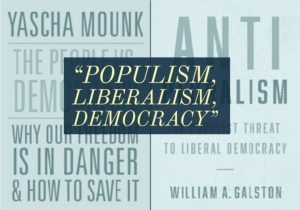
National Endowment for Democracy
Wishful thinking is typical among opponents of authoritarian populists. But populist presidents and prime ministers, on average, stay in office twice as long as non-populist ones: six and a half years compared with three, notes Yascha Mounk, an associate professor at Johns Hopkins University, a contributor to the NED’s Journal of Democracy, and the author of The People vs. Democracy.
As Jordan Kyle and I have shown, this discrepancy becomes especially striking when you examine governments that have been in office for more than 10 years. A populist president or prime minister is five times as likely to remain in office after a decade as a non-populist one, he writes for The Atlantic:
The international context, moreover, also shows that those few populists who don’t get reelected for a second term tend to retain a significant and damaging presence in their country’s politics. Silvio Berlusconi, for example, first became Italy’s prime minister in 1994. He lost his governing majority within months, then quickly recovered, dominating Italian politics for the next two decades. Poland’s Jarosław Kaczyński became prime minister in 2006. He lost power in 2007 and remained in opposition for the following decade. But his party regained power in 2015, and has been subverting the country’s democratic institutions ever since. RTWT







